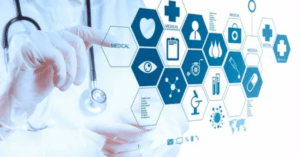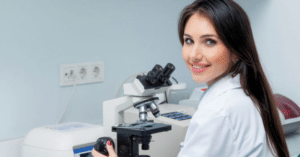Welcome to our blog post where we will be discussing an essential aspect of the healthcare industry that is often overlooked – diagnostic services. These services are a crucial part of ensuring accurate and timely diagnosis for patients, leading to better treatment outcomes and improved quality of life. In this article, we’ll explore the role of diagnostic services in healthcare, some benefits they provide, as well as challenges faced by these services. So, sit back and get ready to learn about the critical role that diagnostics play in modern medicine!
What is the Role of Diagnostic Services in Healthcare?
Diagnostic services are a critical component of modern healthcare. They encompass all the medical tests, imaging scans, and other procedures used to identify illnesses and determine their severity. These services allow doctors to accurately diagnose patients’ health conditions so that they can prescribe appropriate treatments. if you want best medical healthcare services Punjab’s best diagnostic service provider at Rapid Lab.
The role of diagnostic services in healthcare is vast and varied. One primary function is to help doctors make informed decisions about patient care. By analyzing lab results, imaging scans or other diagnostic tests, physicians can better understand what’s happening inside the body – highlighting potential issues requiring treatment or further investigation.
Diagnostic services also play a vital role in preventive medicine by identifying risks for chronic diseases such as diabetes or cancer early on when interventions may be more effective at preventing disease progression.
Diagnostic services provide important insights into people’s health status beyond basic symptoms alone – allowing clinicians to create tailored treatment plans based on accurate diagnoses from these service providers.
What are Some of the Benefits of Diagnostic Services?
Diagnostic services play a crucial role in the healthcare industry by providing accurate and timely diagnosis of illnesses and medical conditions. The benefits of diagnostic services are numerous, and they have a significant impact on patient outcomes.
One major benefit is that diagnostic services help to identify medical conditions at an early stage, allowing for quicker treatment and better outcomes. For example, early detection of cancer through diagnostic imaging can increase the chances of successful treatment. if your doctor suggest you any kind of test Punjab’s best diagnostic service provider at Rapid lab.
Another advantage is that diagnostic tests can provide valuable information about a patient’s overall health status. This information helps physicians make informed decisions about treatment plans, which can ultimately lead to better patient outcomes.
Diagnostic testing also helps to reduce healthcare costs by avoiding unnecessary treatments or procedures. By identifying specific conditions through testing, doctors can avoid prescribing medications or ordering expensive lab work that may not be necessary for their patients’ care.
The benefits of diagnostic services cannot be overstated; they contribute significantly to improving patient care while reducing overall healthcare costs.
What are Some of the Challenges Faced by Diagnostic Services?
Diagnostic services play a crucial role in healthcare, but they also face some challenges that hinder their effectiveness. One of the main challenges is the high cost associated with diagnostic tests and screenings. Patients may avoid seeking these services due to financial constraints, leading to delayed diagnosis and treatment.
Another challenge faced by diagnostic services is the lack of access to advanced technologies and equipment in certain regions or countries. This can result in inaccurate diagnoses or long wait times for patients who need immediate attention.
In addition, there are issues surrounding data management and interpretation. With so much medical information available, it can be difficult for healthcare professionals to accurately diagnose conditions without proper training or experience.
There is a shortage of qualified personnel working within diagnostic services. This includes radiologists, pathologists, and other technicians who specialize in administering tests and interpreting results.
How can Diagnostic Services be Improved?
There are several ways in which diagnostic services can be improved to better serve patients and healthcare providers. One of the primary areas for improvement is the speed at which results are provided. In many cases, delays in receiving test results can lead to prolonged uncertainty and anxiety for patients. Diagnostic centers should prioritize investing in technology that allows them to deliver more timely and accurate results.
Another area where improvements could be made is in the accessibility of diagnostic services. This may involve expanding service locations or offering mobile testing options, especially for those living in rural or remote areas. Additionally, greater collaboration between different healthcare providers could help increase access to a wider range of diagnostic tests.
It’s important to recognize the importance of patient-centered care when improving diagnostic services. Patients should feel comfortable with their healthcare provider throughout the process, from booking an appointment all the way through receiving their test results. Clear communication about what each test entails, why it’s being done, what possible outcomes may arise from it etc., will go a long way towards making patients feel informed and empowered throughout their medical journey
Conclusion
Diagnostic services play a critical role in healthcare by enabling early detection and treatment of diseases. They provide physicians with valuable information to make informed decisions about patient care, leading to better health outcomes.Moreover, healthcare stakeholders should prioritize improving access to these services for all patients regardless of their location or socioeconomic status. By doing so, we can ensure that no one is left behind when it comes to accessing quality healthcare.
Continued advancements in diagnostic services will undoubtedly revolutionize the field of medicine and ultimately improve patient outcomes around the world.




